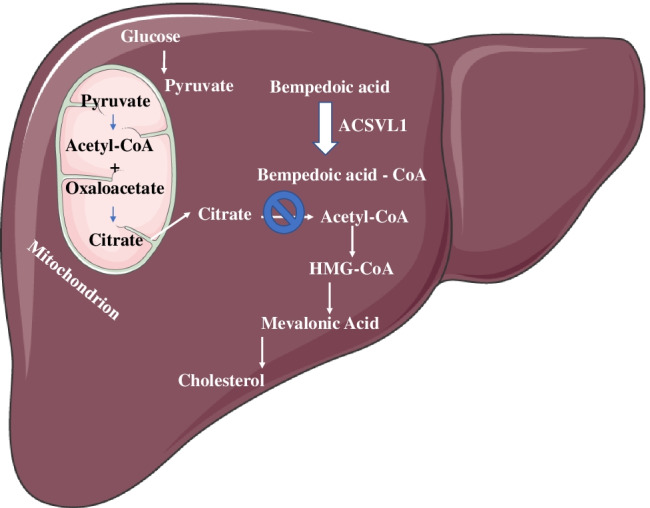Fig. 1.

ATP-citrate lyase (ACLY) is an enzyme possessing the unique feature to be positioned at the intersection of nutrient catabolism, cholesterol and fatty acid biosynthesis, thus connecting glucose metabolism to lipogenesis. Acetyl-CoA is provided from mitochondrial citrate for fatty acid and cholesterol biosynthesis. In liver, ETC-1002 is converted to ETC-1002-CoA, its active form, by the very long-chain acyl-CoA synthetase-1 (ACSVL1): ACLY is a cytosolic enzyme upstream of 3-hydroxy-3-methalglutaryl-coenzyme A (HMGCoA) reductase, and its inhibition results in reduced conversion of mitochondrial-derived citrate to cytosolic acetyl-CoA, resulting in less substrate for both cholesterol and fatty acid synthesis. ETC-1002-CoA is a direct competitive inhibitor of ACLY
